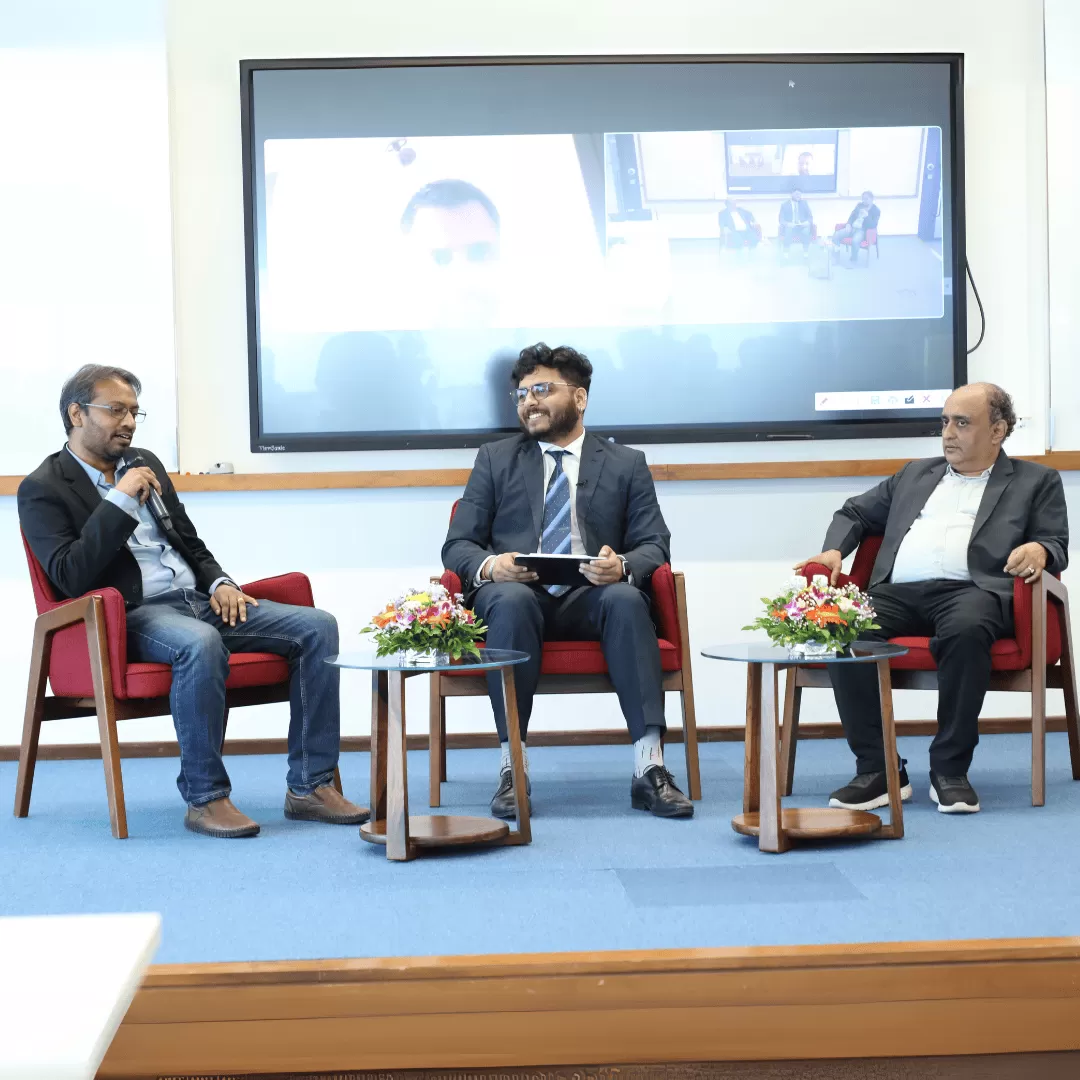
Jio Institute recently hosted a conclave titled "Transforming Data into Digital Strategy," bringing together industry leaders to explore how artificial intelligence is reshaping business landscapes across sectors. The event provided invaluable insights for students pursuing the PGP in Artificial Intelligence & Data Science and PGP in Sports Management and offered a comprehensive view of AI's transformative potential in modern enterprises.
The Evolution from Traditional AI to Generative Intelligence
The conclave, moderated by Mr. Arpit Tiwari, a GenAI Scientist at Jio and alumnus of the AI & Data science programme, featured three distinguished speakers who illuminated the evolution of AI technologies. Mr. Girish Varadarajan, Head-Engineering & Data Platform, Innoviti Technologies emphasized a crucial distinction: "What was once called machine learning is now referred to as AI, but GenAI is different. It's about co-creation, not just prediction."
This paradigm shift represents a fundamental change in how organizations approach AI & Data Science applications. Rather than merely analyzing historical data, modern AI systems are becoming collaborative partners in creative and strategic processes. The transition from curated models to created models marks the emergence of what experts call "Agentic AI"—systems designed to operate autonomously while maintaining human oversight.
Overcoming Cultural and Structural Barriers in AI Implementation
One of the most significant challenges facing AI adoption lies not in technology but in organizational culture. Mr. Siddhart Sureka, Senior Executive Group Vice President & Chief AI Officer, Motilal Oswal Finance Ltd highlighted this critical aspect: "Successful AI implementation hinges on leadership alignment. We need to restructure education, communication, and parallel software engineering efforts to translate prototypes into products."
In traditional sectors like Banking, Financial Services, and Insurance (BFSI), hierarchical and risk-averse cultures often inhibit bold experimentation. Mr. Sureka revealed that at Motilal Oswal, around 40% of AI projects have moved to production within 10 months, while 60% remain experimental—underscoring the importance of aligning AI initiatives with clear business objectives.
Mr. Shripadraj Mujumdar, Head of AI & Intelligent Automation, Godrej Enterprises Group echoed this sentiment, emphasizing the need for comprehensive learning and development programs. "We have 14 verticals across the Godrej Group. For AI to succeed, it has to be embedded across all layers," he explained, highlighting how data science graduates and AI practitioners must work across diverse business functions.
Human-in-the-Loop: Balancing Automation with Trust
A recurring theme throughout the conclave was the critical importance of maintaining human oversight in AI systems. This Human-in-the-Loop (HITL) approach ensures that artificial intelligence enhances rather than replaces human decision-making capabilities.
Mr. Sureka emphasized this principle in financial services: "AI gives us a first draft, but every financial insight is validated by human advisors. This ensures interpretability and mitigates bias." This approach is particularly crucial in regulated industries where trust and compliance are non-negotiable.
Mr. Varadarajan shared practical applications at Innoviti, where AI systems now handle promotional offers across 10,000+ phone models and 100+ retailers, but not without human review. "We integrate human checkpoints throughout our AI pipelines, especially where decisions impact real people and businesses," he noted.
Workforce Evolution and Responsible AI Implementation
Addressing concerns about job displacement, the speakers presented a more nuanced view of AI's impact on employment. Mr. Varadarajan observed that "rather than eliminating jobs, AI elevates roles." By reassigning employees from repetitive tasks to cognitive roles requiring data interpretation and strategic thinking, organizations are seeing improvements in both job satisfaction and operational efficiency.
Mr. Mujumdar reinforced this perspective with a focus on organizational values: "Automation should augment, not replace. Responsible AI is about equity—ensuring that gains are shared and not isolated."
Practical Applications Across Industries
The conclave showcased diverse real-world applications spanning multiple sectors. In manufacturing, Mr. Mujumdar discussed using vision-language models for quality assurance in high-pressure environments like chemical reactors, where "AI helps flag anomalies before they become failures."
In fintech, Varadarajan demonstrated how AI transforms customer-driven innovation: "Our best product ideas don't come from boardrooms—they come from merchants and field agents." GenAI converts these insights into feature updates, enhancing merchant interfaces and payment controls in real-time.
The financial services sector benefits from AI's predictive capabilities, with Mr. Sureka explaining how "forecasting cash flows using historical data and correlating it with seasonal trends helps our teams make more informed treasury decisions."
Looking Forward: The Future of AI Education and Innovation
Dr. Pradip Chatterjee's (Advisor, Corporate Relations and L&D) opening remarks set the tone for sustained strategic readiness in the AI era, emphasizing that educational commitment should go beyond surface metrics. His call for value-based, emotionally resonant approaches to talent and innovation resonates strongly with the philosophy behind Jio Institute's ai & data science programme.
The conclave demonstrated that successful AI implementation requires more than technical expertise—it demands a holistic understanding of business strategy, ethical considerations, and human-centered design. For students pursuing the PGP in Artificial Intelligence & Data Science, these insights provide a roadmap for becoming effective AI practitioners who can bridge the gap between technology and business value.
As AI & Data Science continues to evolve, events like this conclave ensure that future practitioners are equipped not just with technical skills, but with the strategic thinking and ethical framework necessary to drive responsible innovation across industries.
